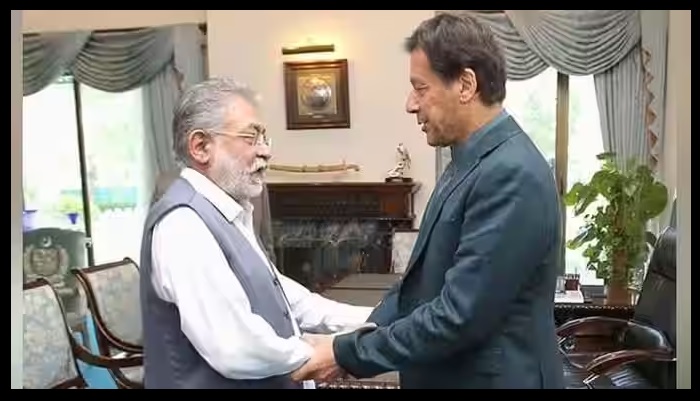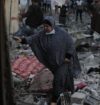Pakistan’s Political Landscape Rocked by GDA Chief’s Martial Law Remarks
In a startling revelation, the leader of the Grand Democratic Alliance (GDA), Pir Pagara, has ignited a firestorm by suggesting the potential imposition of “emergency or martial law” in Pakistan. Pagara’s contentious remarks come amidst mounting unrest over the alleged election rigging following the February 8 nationwide polls, raising eyebrows across the political spectrum and drawing intense scrutiny from the public.
The GDA, along with several other political parties, has taken to the streets in protest against what they claim to be rigged election results, particularly highlighting the victory of the Pakistan Peoples Party (PPP) in Sindh. During a massive demonstration in Jamshoro, Sindh, Pagara articulated his grave concerns over the integrity of the electoral process, alleging that the election outcomes had been predetermined months before the polls.
Pagara, also known as Sibghatullah Shah Rashdi, minced no words as he voiced his skepticism about the fairness of the electoral process, asserting that “the results had been sold” well in advance. Refusing to shy away from his stance, Pagara underscored the significance of their protest against alleged poll manipulation while disavowing any intention to target national institutions, including the armed forces.
While condemning the perceived lack of a national-level leader in Pakistan’s political landscape, Pagara warned of potential instability in the absence of effective leadership. He cautioned that in such a scenario, the country could witness the imposition of emergency measures or martial law. Notably, Pagara suggested that the judiciary would provide legal sanction for such actions in case of uncertainty, amplifying concerns about the fragility of democratic norms and the rule of law in the country.
Despite rejecting calls for boycotting the elections, Pagara’s remarks have reignited debates about the state of democracy and governance in Pakistan. As political tensions continue to simmer and protests intensify, the future trajectory of the country remains uncertain, with the specter of emergency rule looming large over its political landscape.



